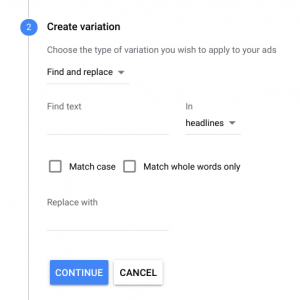Strategic preparation and emotional awareness are key for negotiating win-win martech deals.
Negotiating with martech vendors requires a strategic approach that goes beyond budget considerations. From defining core needs to mastering emotional intelligence, here is a roadmap to navigate the nuances of vendor dynamics.
Dealing with martech vendors
Martech vendor negotiations are never the same – even when dealing with a company you already do business with. Company dynamics, product needs and personalities involved change year over year.
Product features and capabilities — along with pricing — can change based on the vendor’s company goals, financial needs and other factors you may not be privy to. That variability is what makes negotiations fun to many yet anxiety-producing for others.
Defining and communicating your needs is crucial when preparing for vendor negotiations. But it’s not enough to help you become a superior negotiator.
Negotiating with vendors, whether it’s Salesforce, Oracle or your IT department, involves willpower, communication, trust (or lack thereof), compromise and, most importantly, emotional intelligence (EQ). Getting anyone to give you something you want when it may not benefit them takes work.
The fundamentals
Before diving into EQ strategies, make sure you know what you are willing to negotiate on and what you are not.
Outline and prioritize your core needs
Define your requirements and why they’re important, then set a ballpark range of what you can afford to spend. Saying, “I want personalization features,” won’t cut it. You need to be clear about where you want those features to appear, the impact on each placement and their stack rank in case you can only afford a few.
The goal is to articulate what is most important and why it will impact the business. If you can’t communicate its value, then it should be low on your priority list.
Note: Do not share your detailed values list with the vendor. This exercise is for your team and leadership to confirm alignment and negotiation prioritization. The items at the bottom of the list should be considered optional — but not a lost cause. Ask the vendor to give you a free pilot or a steep discount to make the deal beneficial to both companies.
Prepare and plan
Even if you agree to an expedited timeline, take time to outline key documents and deliverables, including:
- A project plan or at least a high-level timeline.
- Product details with pricing explanations.
- Usage and/or a needs assessment.
Determine important procedures like taking meeting notes with action items after every meeting and maintaining an action tracker with responsible parties and due dates defined. Determine a centralized location where both parties can access the documentation.
If you are working with a larger vendor, ask them to assign a project manager to do the work. This should help you manage your time effectively but don’t blindly follow what they produce. Push back, weigh in and set clear expectations on what matters most before you start — and be prepared to stop moving forward if those expectations are not met.
Negotiate what’s most impactful
Time is an important asset. Don’t waste it on things that aren’t important to your business. As mentioned above, if products or features fall low on your priority list, communicate what they could do to make you purchase it – and keep saying the same thing every time it comes up.
Don’t spend cycles reviewing things not aligned with your goals or you know won’t impact your business. Focus the negotiations on the items you want most and be willing to compromise.
Many provisions can be negotiated (i.e., term lengths, volumes and users), making a difficult deal manageable. Be open to others’ ideas and perspectives for the sake of your business.
Where EQ comes into play
To succeed in negotiations, managing your emotions and those of others is crucial. This is what we call emotional intelligence.
Whether it’s that friend or coworker who easily gets frustrated without realizing their impact or someone seeking respect through fear, dealing with varying personalities can be challenging. They might be on your team, the vendor’s team, or even be you. To manage these dynamics, you need a plan.
Start with yourself
Think about your triggers, feelings about those involved, and any biases you may have. I believe we all hold more power than we think. Knowing yourself and recognizing how you impact others will help you in all kinds of negotiations.
For instance, if you tend to be a quiet observer who needs to process details independently after the meeting, make sure to bake in review times and explain why they’re important. You may compromise on the length of the review periods, but communicating your needs can help you avoid feeling rushed or angry.
Build a rapport
If you don’t know the vendor sales team, make your first interaction about getting to know them. They will inevitably speak about the potential deal, so use this time to identify their interest. Pay attention to what excites them and what they speak the most about. Take note of when the actual negotiation begins.

I also pay attention to how they respond to our comments. Do they rush me, include our needs in their responses, or ignore things we call out as concerns? Awareness of their engagement styles and personality types can be used to consider when and how to push for more or let you know when to back off.
Be respectful and socially aware
Once the deal begins, clearly explain what you need and why, then let them respond. If they come back with high prices or terms you consider outrageous, assume it’s just the starting point of the negotiation. Too many people feel insulted or see it as a sign of disrespect. Don’t take things personally.
Like you, they have a manager/company they represent. Focus on being steady and calm while you watch their reactions. In general, don’t insult anyone, engage in unproductive arguing or speak negatively about the products.
Keep the conversations about how the product or service can and cannot add value to your business. I believe it’s more impactful if you come off as unemotional. It keeps them guessing and trying to impress you with their offerings.
Be empathetic
You don’t have to agree with someone to understand their feelings or perspectives. If you are bothered by what they are saying, put yourself in their shoes.
When a friend complains about something I don’t think is a big deal, I ask myself, “Why is this so important to them?” or “Do I lose anything by just listening to their feelings?” Just asking yourself a question is enough to stop, calm down and think about how to phrase your response.
The soft skills behind martech wins
Martech vendor negotiations involve many variables and require emotional intelligence. Before negotiations, clearly define your core needs and business values. During talks, prioritize the most impactful elements but remain open to compromise on lower priorities.
Understanding personal triggers, building rapport and being socially aware, respectful and empathetic with the other party leads to more positive outcomes. By focusing your discussions on potential product value, you are more likely to succeed in securing win-win agreements.
The post The art of martech vendor negotiations appeared first on MarTech.
(6)






